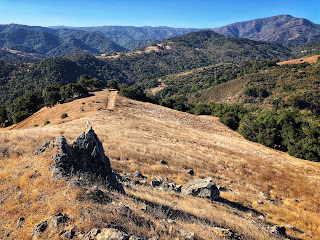30. Binwell Sinyangwe, A Cowrie of Hope (2000) (10/30/2020)
The sixth book in Pete Turchi's "Border Crossings" series of discussions, A Cowrie of Hope is set entirely in Zambia, the particular "border" in this case being between poverty and, if not prosperity exactly, perhaps fulfilling one's dreams, as well as between countryside and the city. It is set in the 1990s, a fact that becomes a refrain of the book: "These were the nineties, the late nineties," we hear repeatedly. "They were lean years. They were the years of each person for himself and hope only under the shadow of the gods."It is a simple story, a parable or a hero's quest, about Belita Bowa, aka Nasula, "mother of Sula" (a name meaning, ironically, "let things be"), who is determined to send her fifteen-year-old daughter to a boarding school in a distant town. That, she reasons, is the only way Sula, her "cowrie of hope," will be able to escape the fate that Nasula herself is condemned to, one of abject poverty, illiteracy, utter dependence on hardscrabble land. For this, however, she needs to raise school fees of 100,000 kwacha. How will she find the money?
She begins by walking to the farm of her dead husband's family, who years earlier cheated her of her inheritance. Now, she hopes they will find a shred of kindness in their hearts to help their granddaughter and niece earn a better life. But what she encounters at the farm is a new form of destitution, caused by HIV/AIDS and the ongoing drought. They have nothing—less than nothing—left.
Next she realizes, thanks to the wisdom of a friend coincidentally visiting from Lusaka, that her meager harvest of dry beans from the spring before could, in the bustling capital city, draw precisely the money she needs plus enough for her passage back home. And so begins a tale of hopefulness punctuated by thievery, desperation, perseverance, and ultimately (spoiler) success. Throughout this weeklong ordeal Nasula becomes one of the city's destitute, sleeping on cardboard in the open-air market and at the bus station, wandering the streets seeking the man who took advantage of her country innocence. Determination and fierce love for her daughter are her only fuel. The book's authority comes from Nasula's own integrity.
A note about context: the 1990s was a politico-economic turning point for many African countries as the International Monetary Fund demanded reforms, including democratization and economic restructuring, as a condition for aid. This created prosperity for some, but for many it only increased hardship. As the above quotation continues, "No one wanted to give because no one had anything to spare. . . . [It was] the years of the rule of money. The years of havelessness, bad rains and the new disease. The harsh years of madness and evil!"
Here is a passage from when Nasula is on the bus returning home, having been swindled out of her beans and the promised payment:
The distance left behind had grown. They were over half way to the first town, Kabwe. A whirlwind was born inside her, filling her with an unearthly power—a confusion of hate, love and passion. Her being spun and floated in anguish, fear and rage. Images germinated and blossomed, clear images, precise, detailed. She began to see with a sense beyond seeing, to hear with a sense beyond hearing, and to feel with a sense beyond feeling. Her mind expanded to unrealisable limits. She acquired extra senses and abilities: determination, resoluteness and clarity.
The world became cold. Too cold. Her world. She started shivering. She trembled like a reed in a fast-flowing river. She was alone in the middle of a plain, a vast expanse of emptiness. She dissolved out of herself and stood apart, watching herself and the cold, darkish sands of the plain. She saw herself at its centre, alone, seated on a stool of life and death, her feet partially buried in the sand.
A hearth appeared before her from nowhere. She stretched her arms over it to warm herself. There was a heat coming from it. But when she tried to stir the fire into more life, she discovered there was no fire. Not a twig of firewood. Horror-stricken, she drew herself closer to the hearth and in a loud, silent, suffering voice she cried out: spirits of the dead, help me, I know of no other way than to bury my heart in this heat without fire.
It is an emotional book, as befits this driven woman. The writing has a lyric quality, feeling at times as if it could have been oral history; I would have loved to have heard it narrated by a Zambian proper. There are also some lovely descriptions, such as:
The sun went down in the west and it was night. A thick darkness fell upon the world. The bus opened its eyes and bathed the road before it with sharp yellow light. In the cool empty silence of the night the bus acquired a fresh breath of life. It roared and moved onward with strength and zeal, like a lion running after a tiring gazelle.
I did especially enjoy all the various allusions to African wildlife.
This is definitely a book I never would have found on my own, so I am grateful to Pete for including it on the list.
~~~~~~~~~~~~~~~~~~~~~~~~~~~~~~~~~~~~~
Current Covid-19 stats for Monterey County: 11,705 total cases, 675 hospitalizations, and 95 deaths (up, respectively, 421, 17, and 8 since the 22nd, so a little over a week). New cases in the double digits every day. This ain't over yet. But it doesn't feel as alarming as it did a few months ago.
Stay safe. Find a good book to read!


















































